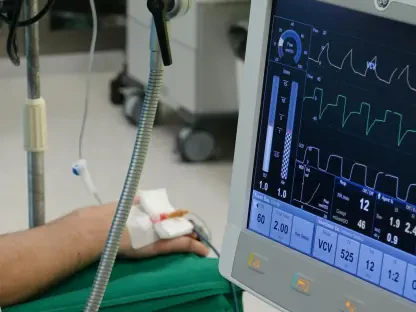Recent developments in the approach to COVID-19 vaccination have underscored the shifting landscape of public health policies in the United States. With the FDA and HHS setting new priorities, the spotlight is now on tackling emerging strains such as JN.1 and its subvariant LP.8.1. These changes reflect a crucial transformation in response to the ongoing evolution of the virus, aiming to enhance vaccine efficacy and streamline its distribution across target demographics, a move that promises to influence public health strategies significantly.
Strategic Shift in Vaccine Focus
Amid efforts to keep pace with viral mutations, the FDA’s latest recommendation for vaccine manufacturers calls for a new formulation concentrating on the JN.1 strain, with a special focus on LP.8.1. This targeted approach reflects the agency’s dedication to refining the immune response against variants currently in circulation, ensuring public health measures are supported by robust scientific findings. The cooperation by industry leaders like Moderna and Pfizer demonstrates a proactive stance towards meeting these regulatory expectations, reinforcing the importance of adaptability in vaccine production.
Insights from Experts and Policy Updates
The seminar featured enlightening contributions from public health leaders, reshaping conversations around vaccine administration. Robert F. Kennedy Jr., the Secretary of Health, announced pivotal changes, including removing certain COVID vaccines from the CDC’s immunization schedule for demographics considered low-risk, such as healthy children and pregnant women. Joined by influential figures like Martin Makary, these updates prompted an introspective discussion concerning the balance between preventive actions and evidence-driven necessities, fostering a broad rethinking of how vaccines should be utilized.
In-Depth Panel Discussions
A series of panel debates delved into the complexities of demographic targeting and thoughtful vaccine policy adjustments required in response to evolving evidence. Experts engaged in discussions highlighting the need to differentiate vaccination strategies based on risk profiles, aligning with new regulatory standards emphasizing comprehensive scientific validation. Such dialogue underlined an imperative to merge caution with efficacy, ensuring vaccine recommendations are grounded in rigorous empirical evaluations.
Engaging Workshops and Innovations Revealed
Interactive workshops provided attendees with opportunities for active participation, revealing the educational aspects of contemporary vaccine strategies. Feedback from these sessions illustrated participants’ interest in understanding the implications of the updated vaccine formulation process and the technologies presented. Highlighting innovations, Moderna’s application for an LP.8.1-specific vaccine emerged as a significant demonstration of technological advancements addressing current viral challenges.
Envisioning Future Public Health Strategies
The event’s discussions highlighted a paradigm shift in how long-term vaccine strategies might adjust to novel challenges in the face of evolving pathogens. Changing regulatory standards are poised to influence industry trends, reorienting the focus toward precision medicine in vaccine development. Adopting these insights could enhance public health responses to variant-specific issues, encouraging a tailored deployment strategy that safeguards against future viral threats while adapting to population health needs.
The event illuminated a transformative moment in public health policy regarding COVID-19 vaccines. Now, in the hands of health authorities are tools crafted from renewed scientific rigor, prepared to guide future vaccination efforts. Moving forward, the focus remains on refining these strategies into actionable public health initiatives, addressing viral dynamics head-on, and navigating demographic intricacies with precision and prudence.









